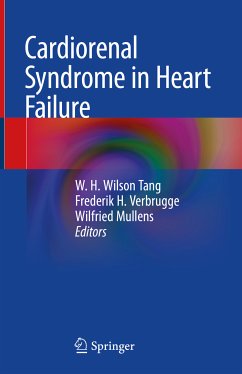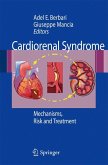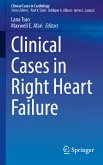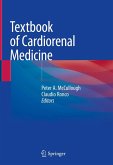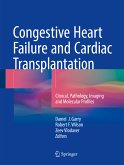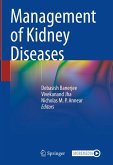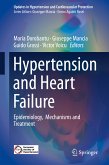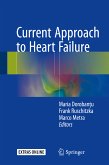This comprehensive manual reviews the management of cardiorenal syndrome in heart failure. Chapters are structured in a practically applicable and easy-to-follow format with realistic case vignettes and key clinical management questions and answers, followed by a brief discussion of underlying pathophysiological mechanisms of a patient with cardiorenal syndrome. Building from this case, key questions are posed that are relevant to the clinical management and then potential evidence-based treatment strategies are proposed. Topics covered include loop diuretic resistance in acute and chronic heart failure, abdominal congestion, low output failure and potential diuretic complications due to hyponatremia.
Cardiorenal Syndrome in Heart Failure thoroughly reviews cardiorenal syndrome from the perspective of both the cardiologist and nephrologist. Its case-based approach makes it an ideal resource for both practising and trainee cardiology and nephrology practitioners.
Dieser Download kann aus rechtlichen Gründen nur mit Rechnungsadresse in A, B, BG, CY, CZ, D, DK, EW, E, FIN, F, GR, HR, H, IRL, I, LT, L, LR, M, NL, PL, P, R, S, SLO, SK ausgeliefert werden.
Es gelten unsere Allgemeinen Geschäftsbedingungen: www.buecher.de/agb
Impressum
www.buecher.de ist ein Internetauftritt der buecher.de internetstores GmbH
Geschäftsführung: Monica Sawhney | Roland Kölbl | Günter Hilger
Sitz der Gesellschaft: Batheyer Straße 115 - 117, 58099 Hagen
Postanschrift: Bürgermeister-Wegele-Str. 12, 86167 Augsburg
Amtsgericht Hagen HRB 13257
Steuernummer: 321/5800/1497
USt-IdNr: DE450055826
Bitte wählen Sie Ihr Anliegen aus.
Rechnungen
Retourenschein anfordern
Bestellstatus
Storno

